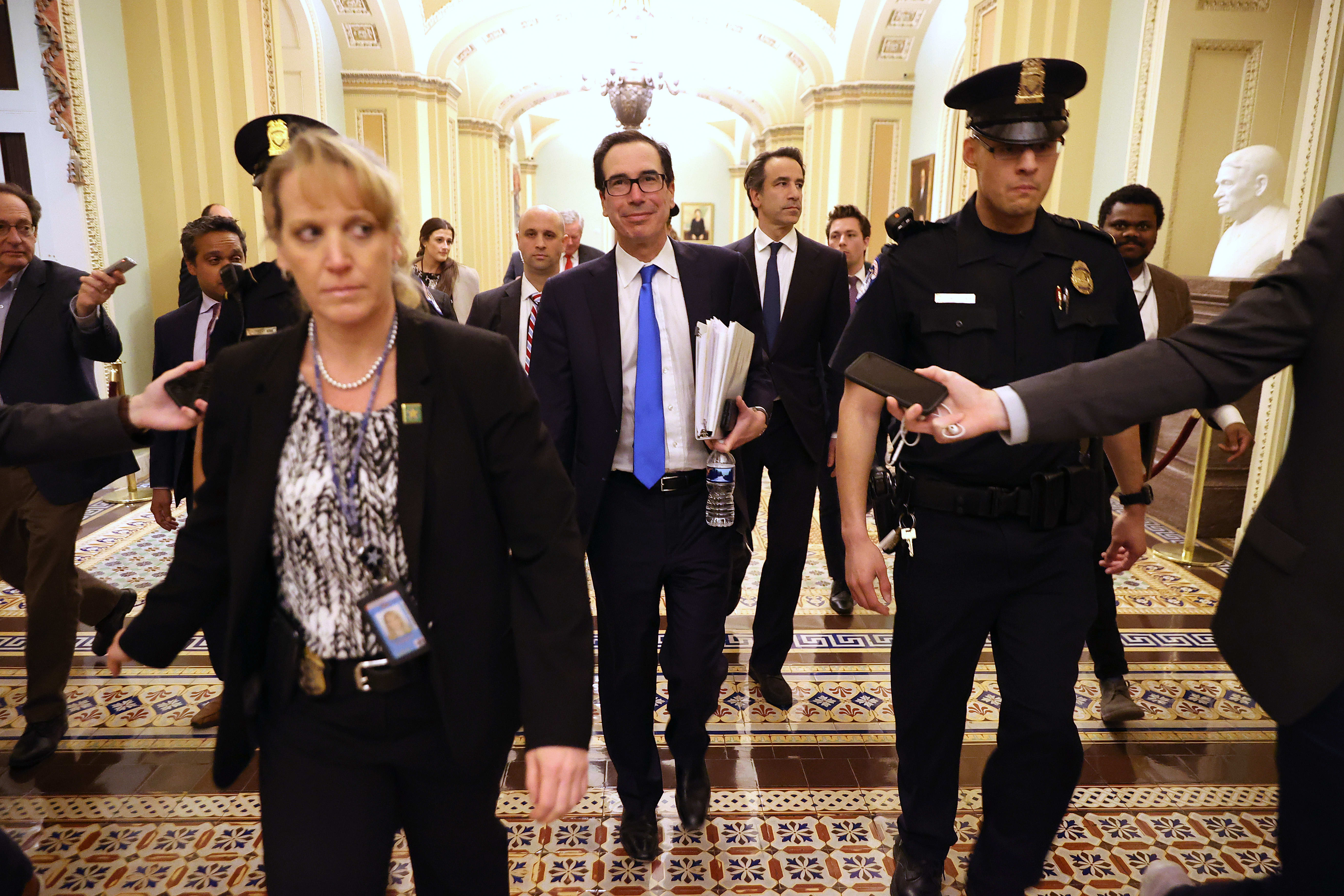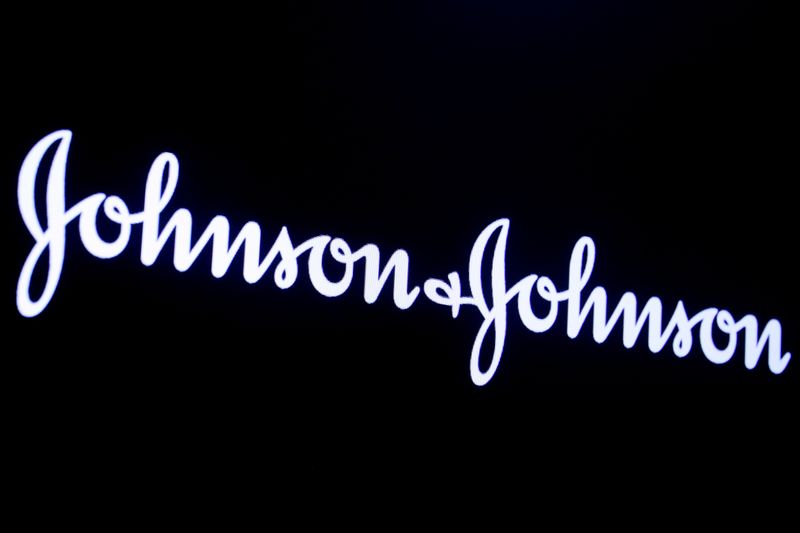
The White House and Senate leaders reached a deal early Wednesday on a massive $2 trillion relief bill — said to be the largest rescue package in American history — to combat the economic impact of the coronavirus outbreak.
As of Wednesday morning, though, the Senate was still drafting the final details of the text. A senior Democratic aide told CNBC that due to procedural reasons, including how long it is taking the Senate to send over a draft of the bill, it is unlikely the House will vote on it Wednesday. The House needs to pass the bill before it can reach President Donald Trump’s desk.
Efforts to pass the measure have taken on urgency as hospitals, companies, states and individuals have all pleaded for needed resources to battle the pandemic. Its impact has now reached into the Senate: Sen. Rand Paul, R-Ky., earlier this week announced he has tested positive for coronavirus.
“At last we have a deal,” Senate Majority Leader Mitch McConnell said after 1:30 a.m. ET Wednesday from the floor of the Senate.
“In effect, this is a war-time level of investment into our nation,” said McConnell, who promised the bill would rush financial assistance to Americans through direct checks to households, enhanced unemployment insurance, hundreds of billions of dollars in emergency loans to small businesses, and more resources for hospitals and medical equipment.
The Senate has yet to release the final terms of the deal. An earlier draft seen Tuesday would provide cash payments of up to $1,200 for individuals, $2,400 for married couples and $500 per child, reduced if an individual makes more than $75,000 or a couple makes more than $150,000.
The draft language also stipulated a $350 billion fund for small businesses to mitigate layoffs and support payroll.
Employers will get a deferral of payroll taxes, but and pay them back on a staggered in coming years, the administration official said. The deferral only applies to employers, and not employees.
McConnell said the bill would “stabilize key national industries” to prevent as many layoffs as possible. U.S. passenger and cargo airlines have sought $58 billion in government relief to help manage a financial blow that they say is worse than 9/11. The details of that aid package was one of the last major outstanding issues Tuesday night.
US Senate Majority Leader Mitch McConnell, Republican of Kentucky, holds a press briefing about legislation in response to the novel coronavirus, COVID-19, at the US Capitol in Washington, DC, March 17, 2020.
Saul Loeb | AFP | Getty Images
As part of the deal, airlines will be prohibited from stock buybacks and CEO bonuses, Senate Minority Leader Chuck Schumer wrote in a letter Wednesday to Democratic senators. The duration of that ban could not be immediately determined.
A senior administration official told CNBC that airlines will not need to pay back the direct grants they receive, though the government will take some equity share. Companies must also agree to refrain from layoffs through a date later this year.
“After five days of arduous negotiations, after sleep-deprived nights and marathon negotiating sessions, we have a bipartisan agreement on the largest rescue package in American history,” Schumer said on the floor Wednesday morning.
He touted “unemployment compensation on steroids,” which would cover every American for four months, as the U.S. braces for historic layoffs and furloughs.
The New York Democrat promised oversight on the loans the U.S. offers businesses, saying “every loan document will be made public very quickly” to make sure those loans are fair. He also said an inspector general and an oversight board would supervise the loans, after earlier criticism from Democrats that a proposed $500 billion fund for businesses left too much discretion to the Treasury.
Businesses controlled by the president, vice president, congressional lawmakers and heads of executive departments are barred from receiving loans, Schumer wrote in his early morning letter to senators. The hotel industry is among the hardest hit. Trump him himself owns several of them.
The president is aware of and agreed to that provision, according the a senior administration official.
Schumer also wrote that the bill bars stock buybacks for the term of the government assistance plus one year on any company receiving a loan through the legislation.
The deal will allocate $150 billion to states and localities battling the pandemic and $55 billion more for the health-care system.
US Democratic Leader Chuck Schumer, Democrat of New York, speaks during a press briefing about the response to the novel coronavirus, COVID-19, at the US Capitol in Washington, DC, March 17, 2020.
Saul Loeb | AFP | Getty Images
According to Schumer’s letter to colleagues, the deal also includes $10 billion in Small Business Administration emergency grants and up to $10 million of emergency relief per business. It allocates $17 billion for the SBA to cover six months of payment for small businesses with existing SBA loans.
It will offer $30 billion in emergency education funding and $25 billion in emergency transit funding.
McConnell said the Senate will vote and pass the legislation later Wednesday. As of Wednesday morning, the Senate was still drafting language, with plans to vote on the bill late afternoon, a person familiar with the situation said.
The House will not move the bill Wednesday after a brief pro forma session in the morning, according to a Democratic aide.
House weighs in
Any deal the GOP-controlled Senate approves needs to be passed by the Democratic-led House. It is possible House Speaker Nancy Pelosi, D-Calif., who has been talking with Schumer, could push for more changes to the Senate bill before giving it the go-ahead.
On Wednesday morning, Pelosi said in a statement that the “bipartisan legislation takes us a long way down the road in meeting the needs of the American people,” noting that Democrats had made significant changes to an original proposal crafted by Republicans and the Trump administration.
Pelosi this week released her own House stimulus proposal, which though largely symbolic, laid out the Democrats’ agenda. It included regulations over carbon emissions and tough oversight of companies accepting federal loans.
In her statement Wednesday, Pelosi said House Democrats will now “review the final provisions and legislative text of the agreement to determine a course of action.”
House Speaker Nancy Pelosi (D-CA) makes a statement about coronavirus disease (COVID-19) economic relief legislation on Capitol Hill in Washington, March 23, 2020.
Joshua Roberts | Reuters
If the two parties have unanimous consent over the bill, it can move quickly through the House.
“If we don’t have unanimous consent,” Pelosi cautioned Tuesday, “my two options with my members is: We can call them back to vote to amend this bill, or to pass our own bill and then go to conference with that.”
White House press secretary Stephanie Grisham said Wednesday morning that Trump is eager to sign the bill.
The president has been very active in this process, so he’s well aware of what is in it,” Grisham said on Fox News.
“He’s been pushing for congress to do the right thing and get ready help the American people. So we’re really looking forward to this vote today so that he can sign it into law,” she said.
Stock futures were mixed early Wednesday, following Tuesday’s historic rally.
Friendlier tone
The day leading up to the talks started on an optimistic note that stood in contrast to the bitter partisanship that consumed the Senate floor Monday, when the bill again failed a key procedural hurdle.
Democrats had accused Republicans of favoring Big Business over workers and health care. Republicans said Democrats were causing unnecessary delay by focusing on issues outside the economic crisis facing the country, like giving more bargaining power to unions, increasing fuel emissions standards for airlines, and wind and solar tax credits.
Pelosi rolled out her own House proposal Monday, further rankling Republicans.
Trump started the day pushing for a deal. “Congress must approve the deal, without all of the nonsense, today,” he tweeted Tuesday morning. “The longer it takes, the harder it will be to start up our economy.”
Uncertainty over the deal had rattled markets. Hospitals, workers and individuals have all said they need money now.
Mnuchin and Schumer met six times on Monday, ending on a positive note around midnight. The two picked up negotiations again at 9 a.m. Tuesday.
Treasury Secretary Steven Mnuchin (C) leaves the offices of Minority Leader Charles Schumer (D-NY) as negotiations continue into the night on a $2 trillion economic stimulus in response to the coronavirus pandemic at the U.S. Capitol March 24, 2020 in Washington, DC.
Chip Somodevilla | Getty Images
Later in the day, Pelosi told CNBC there was “real optimism” Congress can clinch a pact within a few hours. McConnell said the bill is at the “five-yard line.”
Just before 11 a.m., Mnuchin, Schumer and Rep. Mark Meadows, Trump’s incoming chief of staff, held a meeting in Schumer’s office.
After the meeting, Schumer said on the Senate floor that negotiators were on the “two-yard line.” Issues can be resolved within hours, he added.
While negotiations carried on longer than Schumer forecast, top White House economic aide Larry Kudlow said Tuesday evening the parties were making “great progress.”
“They’re getting close and closer, they expect a vote as soon as possible,” Kudlow said.
Optimism over the potential deal helped drive the Dow Jones Industrial Average up more than 11% Tuesday, notching its biggest one-day percentage gain since 1933.
Bailout fund
Still, questions around the $500 billion fund had remained.
Schumer said Tuesday that Democrats were making “very good progress” in their efforts to add “incentive or mandate” for companies receiving federal loans or grants to keep their employees.
It remains unclear whether the government will demand equity of any of the companies it offers aid to, although lawmakers said the government has considered demanding warrants as part of its airline aid. There has been resistance to equity stakes, which dilute shareholders and give the government stronger oversight, lobbyists have told CNBC.
Boeing CEO David Calhoun told Fox News on Tuesday that if the government “forces” an equity stake, then “we just look at all the other options. And we’ve got plenty of them.”
“It’s just not ideal for us, our suppliers, and all of those companies spread throughout the United States,” he added.
Trump has previously offered his support of the aerospace titan, saying “we have to protect Boeing.” He has also said he would consider urging the government to take an equity stake in companies that have bought back stock.
Airline aid
Lawmakers considered providing at least some of the aid to airlines, among the hardest hit companies from the crisis, in the form of cash grants, according to a person familiar with the matter.
Cash grants would be a victory for airline executives who were pleading with lawmakers to have half of the aid come in the form of cash grants, not just loans, which Republican senators had originally proposed. Labor leaders and executives have argued that saddling companies in debt through loans would make recovery even harder. U.S. airlines employ some 750,000 people.
Carriers have been racing to cut costs, grounding hundreds of planes and asking thousands of workers to take unpaid leave. Airlines are also tapping credit lines to shore up cash to weather the crisis, the impact of which they say is worse than 9/11.
U.S. airlines’ lobbying group, Airlines for America, said the industry would commit to not furlough employees through Aug. 31 if they received grants.
CNBC’s Eamon Javers, Jacob Pramuk and Kevin Breuninger contributed to this report.

